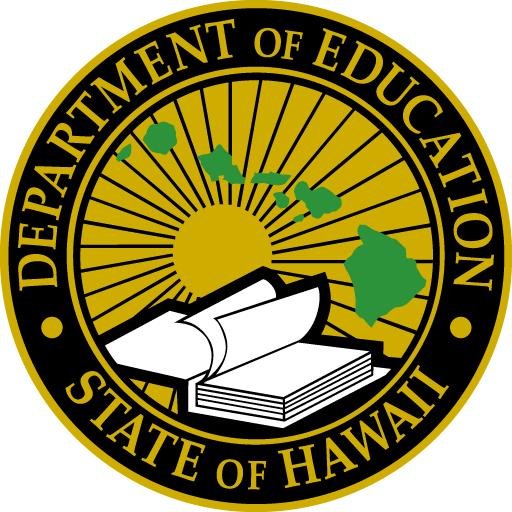We are committed to safeguarding student privacy and ensuring families are informed about their rights. From understanding the Family Educational Rights and Privacy Act (FERPA) to managing photo and media releases, this page provides key information and resources to help parents, guardians and students make informed decisions.
Explore policies, forms and guidelines designed to protect student data and uphold privacy in our schools.
Family Educational Rights and Privacy Act (FERPA)
Each year, Hawaiʻi public schools are required to notify parents of their rights under the federal Family Educational Rights and Privacy Act. These rights are generally broken into four sections. Here is a brief description of FERPA rights:
- The right to inspect and review the student’s education records within 45 days of the request.
- The right to request the amendment of the student’s education records that the parent, guardian or eligible student believe are inaccurate or misleading.
- The right to consent to disclosures of personally identifiable information (PII) contained in the student’s education records, except to the extent that FERPA authorizes disclosure without consent. One exception that permits disclosure without consent is disclosure to school officials with legitimate educational interests.
- O le aia tatau e faila ai se faaseā i le US Department of Education e uiga i le lē taulau o le a'oga i le tausisia o manaoga o le FERPA.
Parent Notification and Guide to Student Fa'amatalaga Privacy (PDF) o lo'o maua fa'aliliuga ile:
Consent for Release of Student Fa'amatalaga
Mataupu 34 o Tulafono Fa'afoe a Hawai'i (PDF) provides for the following rights relating to the educational records of students:
- E mafai e matua ona asiasia, toe iloilo, lu'i pe maua ni kopi; faataga isi e toe iloilo; ma tuuina atu le faatagaga mo le tatalaina o i latou.
- The rights of parents shall be transferred to the student who has attained 18 years of age.
- Tamaiti a'oga under 18 years of age shall have the right to receive all educational data pertinent to facilitate instruction, guidance, and counseling.
O le Mataupu 34 Fa'atagaga mo le Tu'uina atu o Fa'amatalaga o lo'o avanoa e fa'ataga ai le tu'uina atu po'o le mauaina o pepa/fa'amatalaga patino.
O le Consent for Release of Information of Student Records Form (PDF) (RS 23-0270) are available in:
Fa'amatalaga Fa'atonu
FERPA requires that the Department, with certain exceptions, obtain parent, guardian or eligible student’s consent prior to the disclosure of personally identifiable information from the student’s education records. However, the Department may disclose appropriately designated “directory information” without prior written consent, unless the parent or eligible student has advised the Department to the contrary in accordance with Department procedures.
The primary purpose of directory information is to allow the Department to include information from the student’s education records in certain school publications. Examples include, but are not limited to:
- A playbill, showing the student’s role in a drama production.
- Le tusi tausaga faaletausaga.
- Lola mamalu po'o isi lisi fa'ailoa.
- Polokalame fa'au'uga.
- Pepa o gaoioiga ta'aloga, e pei o le pi'iga, fa'aalia le mamafa ma le maualuga o tagata o le 'au.
O le Fa'aaliga Fa'amatalaga Fa'asinomaga (PDF) e maua foi i:
Student Publication Audio/Video Release Forms
Photos, video and audio recordings, and student work products/publications are not considered directory information, and may include personally identifiable information protected under FERPA. Also, student teachers participating in educator preparation programs and staff in professional development courses within the Department may have access to photos, video and audio recordings, and student work samples in the course of their participation in these activities, and therefore would need parent/guardian/eligible student consent to have access to these materials. This consent is given via the following forms:
Student Publication/Audio/Video (SPAV) Release Form for Events (PDF) (RS 21-0479): Optional to allow consent for a specific school event or publication for the school year.
The SPAV event release form (RS 21-0479) is also available in:
Student Publication/Audio/Video (SPAV) Release Form (PDF) (RS 24-0607): Manaomia le fa'asalalauina o mea uma a le a'oga ma fa'asalalauga se'i vagana ua fa'aleaogaina.
The SPAV release form (RS 21-0480) is also available in:
Puipuiga o Aia Tatau a Tamaiti Aoga (PPRA)
O le PPRA feterale e tu'uina atu i matua ni aia tatau e uiga i la tatou fa'atinoga o su'esu'ega, aoina ma le fa'aogaina o fa'amatalaga mo le maketiina, ma nisi su'ega fa'aletino.
O le Puipuiga o Aia Tatau a Tamaiti Aoga (PDF) e maua foi i:
Tu'uina atu o Fa'amatalaga i Tagata Fa'afitafita
The federal Elementary and Secondary Education Act requires the Department to provide to military recruiters, upon their request, the name, address and telephone number (including unlisted number) of secondary school students. Although military recruiters focus their efforts on high school juniors and seniors, the law allows for the gathering of this information from the broad category of “secondary” students, defined as students in grades 7-12. If any secondary student or the parent/guardian of a secondary student does not want the Department to provide the requested information to military recruiters, the secondary student or the parent/guardian must opt-out of providing such information.
O le Military Recruiters’ Request for Student Information Notice (PDF) e maua foi i:
O le Pepa Fa'ate'a Fa'a'au'au Militeri (PDF) e maua foi i:
Fa'alapotopotoga o A'oa'oga Maualuga Fa'asalalau Fa'amatalaga
The Every Student Succeeds Act of 2015 requires all local education agencies to provide to institutions of higher education, upon their request, the name, address, and telephone number of secondary school students. Although post-secondary institutions focus their efforts on high school juniors and seniors, the law allows for the gathering of this information from secondary students. If any eligible student (18 years of age) or the parent/guardian of a secondary student does not want the HIDOE to provide the requested information to institutions of higher education, the secondary student or the parent/guardian must “opt-out” of providing such information.
O le Institutions of Higher Learning Request for Student Information Notice (PDF) e maua foi i:
O le Fa'alapotopotoga o A'oa'oga Maualuga Pepa Fa'ate'ese (PDF) e maua foi i:
Fa'aaogaina Fa'atekonolosi Fa'atatau
The Department is committed to guide students in the use of technology as a tool to support their achievement. Parents/guardians should review the Ta'iala mo le Fa'aaogāga Fa'atekonolosi (TRUG) (PDF) ma le la tama; ona saini lea o le Fa'atekonolosi Fa'aaoga Fa'atatau (TRUF) (PDF) e fausia ai se malamalamaga ma se maliliega e usita'ia tulafono uma, tulafono ma ta'iala e fa'atatau i masini fa'atekinolosi a le Matagaluega po'o lisi, feso'ota'iga ma 'au'aunaga initaneti, e ono suia pe fa'alautele pe a mana'omia e le Matagaluega.
O le Ta'iala mo le Fa'aaogāga Fa'atekonolosi (TRUG) (PDF) e maua foi i:
O le Fa'atekonolosi Fa'aaoga Fa'atatau (TRUF) (PDF) e maua foi i:
Punaoa
- Tulaga faalilolilo a tamaiti aoga Booklet, School Year 2025-26 (PDF)
- What is Student Data?: http://dataqualitycampaign.org/find-resources/what-is-student-data/
- FERPA guidance for parents and students: https://studentprivacy.ed.gov/audience/parents-and-students

MO nisi fa'amatalaga
Fa'amatalaga Pulea ma Su'esu'ega Lala
Telefoni: 808-784-6050
imeli
